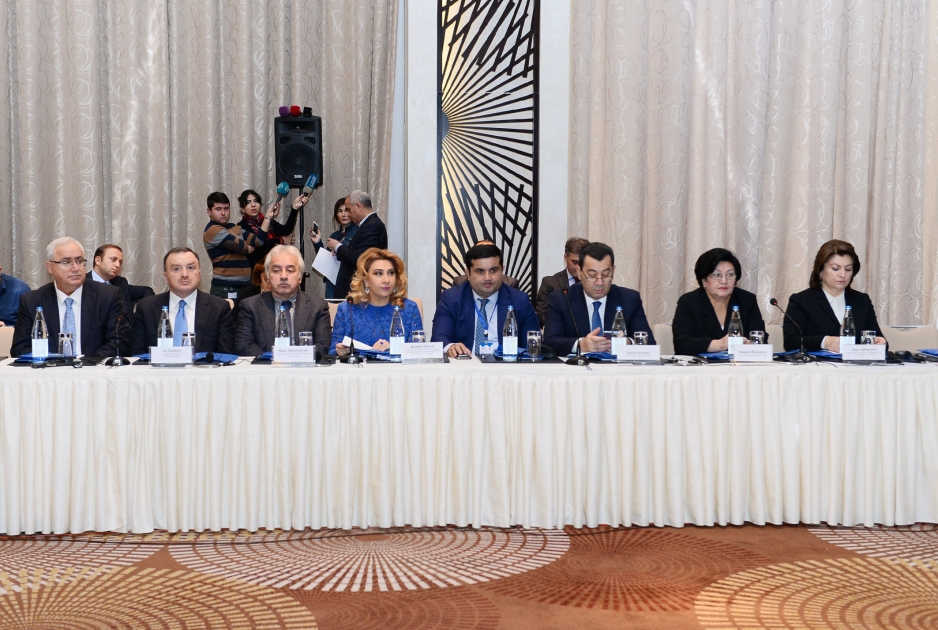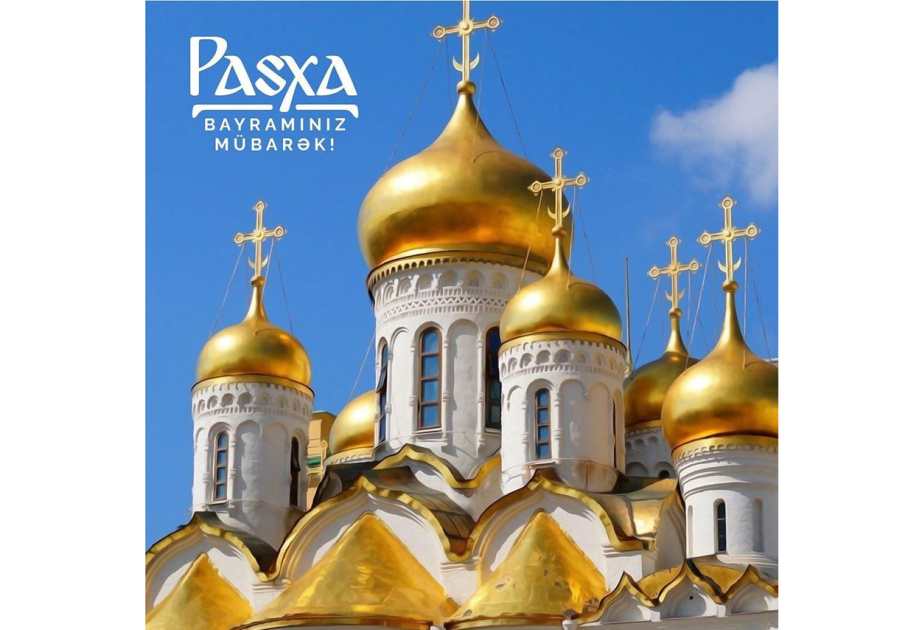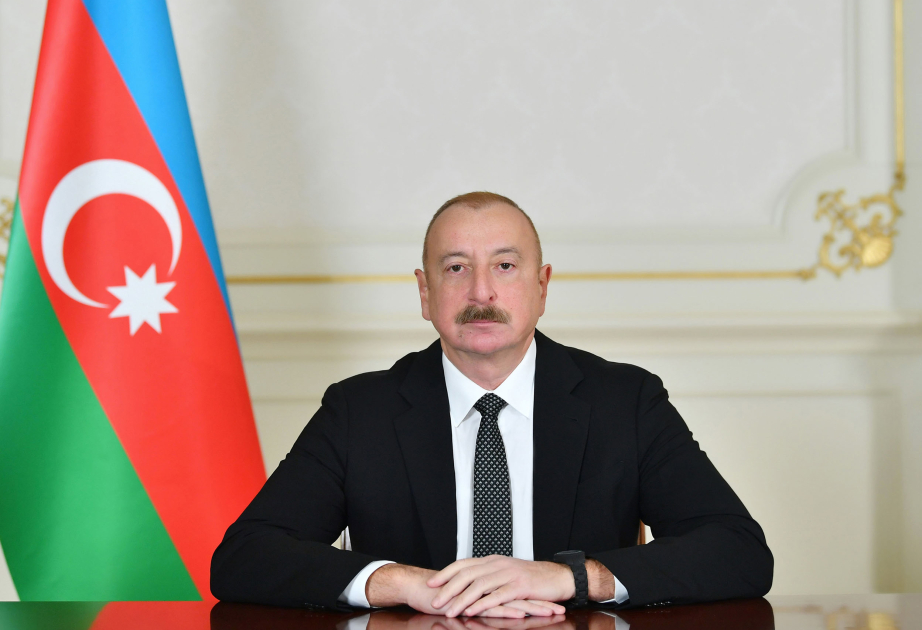POLITICS
13th International Conference of Ombudsmen kicks off in Baku VIDEO





Baku, November 12, AZERTAC
The 13th International Conference of Ombudsmen has kicked off in Baku.
Entitled "The role of cooperation between local and international organizations in ensuring constitutional rights and freedoms", the conference marks the 20th anniversary of the adoption of Azerbaijan`s Constitution, and the 70th jubilee of the United Nations and UNESCO.
Ombudsmen from more than 10 European, Asian and African countries, international human rights experts, representatives of international organizations and scientists attend the conference, which was organized in partnership with UNESCO.
Opening the event, Azerbaijani Ombudsperson Elmira Suleymanova said it is symbolic that the conference is held on November 12. "This marks the day when the first Constitution of Azerbaijan was adopted. As an institution with the constitutional status, the activity of Ombudsman office is regulated by the basic law." Ms Suleymanova noted that Azerbaijan has made great strides in human rights in recent years.
"This conference also marks the jubilee of the UN and UNESCO. These organizations had played a vital role in building and developing Ombudsman institutions. The basic document specifying the role, status, functions of national human rights institutions - Paris Principles - was adopted in the United Nations General Assembly in 1993. Azerbaijan`s Ombudsman institute was accredited with "A" status twice by the UN in 2006 and 2012 in recognition of its commitment to those principles."
The Azerbaijani President`s Aide for Public and Political Affairs Ali Hasanov said: "After gaining its independence in the early 1990s, Azerbaijan set itself key tasks - building a constitutional state and establishing a democratic and pluralistic society. A brainchild of national leader Heydar Aliyev, the first Constitution of the Republic of Azerbaijan stipulated separation of powers, liberal economy, civil society building, and main principles of human rights and freedoms."
"Today Azerbaijan is a country that pursues an independent policy and progresses democratically and dynamically, and enjoys a strong international reputation. Civil society is developing in Azerbaijan. Freedoms of thought, speech and information are ensured for everyone. Necessary conditions have been ensured in Azerbaijan for the activities of political parties, NGOs and the mass media. What Azerbaijani President Ilham Aliyev firmly believes is that an independent political, liberal economic system and strong civil society are the main tools for sustaining dynamic development of any country. So the Azerbaijani government pursues a consistent policy whose fundamental principles include strengthening democratic values, encouraging human rights and freedoms, improving civil society institutions and stimulating their activities."
Mr Hasanov said: "However, gaining these accomplishments was not easy at all. Since the end of the last century, Azerbaijan has faced Armenia's territorial claims and policy of aggression. We can simply say that Armenians has purposefully drawn the conflict into an armed strife. More than 200,000 Azerbaijanis who lived in Armenia were deported in the late 1980s."
"In the beginning of 1992, Armenia started military operations against Azerbaijan. On the night of 26 February 1992, a genocide was committed in the Azerbaijani town of Khojaly. Hundreds of people were slaughtered, more than thousand people were taken captive. Then seven surrounding regions that are more than four times larger (17,000 square km) than Nagorno-Karabakh (4,400 square km) were invaded by Armenians. More than one million Azerbaijanis became IDPs. Currently more than 20 percent of Azerbaijani territories are under occupation. More than 20,000 Azerbaijani citizens died in the battles for Karabakh, nearly 100,000 were wounded, while 50,000 people are disabled now."
"The UN Security Council adopted seven statements and four resolutions (No 822, 853, 874, 884) on the occupation of the Azerbaijani lands by the Armenian armed forces. However, Armenia has not yet executed those resolutions, and remains committed to its position which fully contradicts the international law. Azerbaijan accords great importance to peace and security in the South Caucasus and Caspian region. Armenia, which occupied 20 percent of the Azerbaijani territories, which lays territorial claims to other countries in the region and demands territories and compensation for the so-called Armenian genocide from Turkey, is a serious threat to the regional security with its aggressive policy. Armenia chose terrorism as a tool for realizing those claims. The Armenian terrorist groups have committed 388 terrorist acts since 1984, killing 1189 and wounding 1705 people. The Armenian-Azerbaijani Nagorno-Karabakh conflict is also a serious obstacle to ensuring democratic growth, human rights and freedoms in the region. Undoubtedly, were it not for such a problem or if it had been solved on time, the countries of the region would have developed more and peace and security would have been ensured in a more reliable manner."
Chairman of the Constitutional Court Farhad Abdullayev said that the conference coincides with "a notable day". "Today marks the Constitution Day and the jubilee of Azerbaijan`s basic law. The adoption of the Constitution in a referendum on 12 November 1995 is one of Azerbaijan`s milestone achievements in the years of independence that marked the beginning of a new stage in democratic and constitutional state building in our country. It is the Constitution that lies at the heart of Azerbaijan's accomplishments in building legal and civil society and laws adopted in the Milli Majlis. Azerbaijan's proving itself as a civil, democratic, loyal state at the international level demonstrates that the Constitution is an advanced and precious document." Mr Abdullayev stressed that Azerbaijan built itself an image of a reliable partner in all areas. "Azerbaijan is implementing huge projects and hosting high-profile international events."
"Over 20 years since adopting the Constitution the Azerbaijani government has proved its commitment to universal values, constitutional state ideals, justice and humanity, and showed perseverance to protect human and civil rights and freedoms."
Mr Abdullayev hailed the Constitutional Court`s cooperation with the Ombudsman's office. "Many of the decisions of the court in legal, social, criminal and civil procedure have been adopted based on the Ombudsman`s inquiry and appeals. This cooperation will continue. The Ombudsman's institute is operating effectively, it has a very active position between the citizen and the government."
President of the Turkic Culture & Heritage Foundation Gunay Efendiyeva noted that as a result of Armenia's military aggression against Azerbaijan hundreds of monuments have been purposefully destroyed in Nagorno-Karabakh and surrounding regions. "This is the violation of the Azerbaijani people`s cultural rights. Every nation is recognized with their national values and qualities. And misappropriation of those qualities by others is unacceptable. That is why the activity of international organizations engaged in human rights, especially cultural rights, should be expanded and their efforts should be closely coordinated." "The charter of the Turkic Culture & Heritage Foundation stipulates that the coordination of activities in the cultural area through international cooperation is the key priority for the organization," she added.
The conference will be culminated with the adoption of Baku Declaration.









